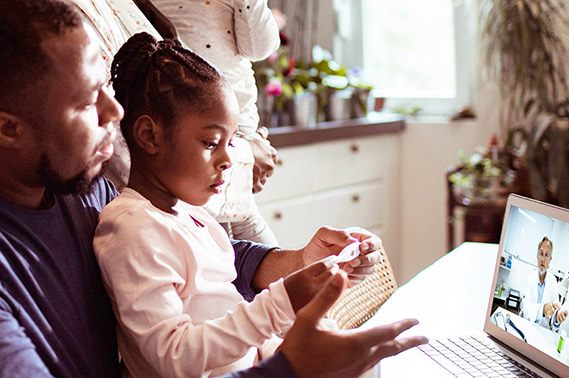We Keep NYC Healthy
The nation’s largest municipal health system empowering New Yorkers to live their healthiest life.
The nation’s largest municipal health system empowering New Yorkers to live their healthiest life.
We have several options to connect with our health care providers without coming into the doctor’s office or hospital.

Your online patient portal to connect with doctors and your health information.
Speak to a doctor by telephone.
Skip the emergency room. Talk to a doctor now for virtual urgent care.
Video visit with a doctor on your smartphone or computer.
No matter your health care needs, the NYC Health + Hospitals system is there for you.
Our hospitals, nursing homes, and Gotham Health Centers are recognized for racial equity and outstanding services. We offer quality, affordable care in every New York City neighborhood.
A primary care provider is the best first point of contact for all of your health needs.
Suffering from Long COVID? We have specialized services for you.
Our cardiac specialists provide superior care, innovative treatments and surgical advances to keep you heart healthy.
Our surgical teams provide a wide range of innovative, life-saving elective and emergency surgical services.
Our doctors, nurses, midwives and social workers support every stage of pregnancy from prenatal care, labor and delivery, to postpartum care.
Our dieticians and nutritionists create personalized plans to promote a plant-based diet, reduce stress, and improve your life.